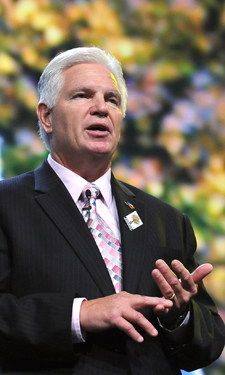 During the past several years, NRPA Board governance has become a deciding component of organizational effectiveness and a crucial part of the functioning life of the national association. Good governance has ensured that objectives were realized, resources were well managed, and the interests of NRPA’s stakeholders were protected and reflected in key decisions.
During the past several years, NRPA Board governance has become a deciding component of organizational effectiveness and a crucial part of the functioning life of the national association. Good governance has ensured that objectives were realized, resources were well managed, and the interests of NRPA’s stakeholders were protected and reflected in key decisions.
After closer scrutiny of our internal governance, your NRPA Board of Directors created a Governance Committee in 2012 to bring needed governance- related concerns up to contemporary standards. Under the skillful leadership of Chair-Elect Robert Ashcraft, the Governance Committee has aggressively reviewed the organizational structure and functioning of the board. In addition, this new committee now reviews the bylaws annually and offers recommended changes for board approval, reviews the board committee structure every two years, and reviews the board composition and size to ensure that NRPA can move forward and prosper in the future.
After a careful review and involved discussion, the NRPA Board has now decided to reduce the board size from 21 members to a range of 13 to 19. This sizing of the board was made to provide thoughtful and effective decision making to remain relevant.
In addition, the board has now removed the National Forum from its organizational structure. This action results from years of wrestling with the purpose of this entity. The subsequent creation of the NRPA Networks and the fact that all board members are now at-large members representing the entire association and not a particular section, branch, region, etc., compels us to continue our efforts to achieve streamlined and nimbler governance. This also ensures that NRPA’s quality and productive staff will work in true partnership with their volunteer leaders and that we will be operating within a realistic and well-defined membership market.
Your NRPA Board of Directors started this journey together by recognizing the challenges facing our national association: competition for members’ time, loss of market share, shrinking revenue sources, continued advances in technology, higher member expectations, and a more diverse membership.
The board realizes fully that in order for NRPA to have relevance in the future, we will need to tackle these tough questions and decisions today which may lead to needed changes tomorrow. The hard work now being conducted by your board will ensure that NRPA is poised for the future and will thrive, not just survive.
Steve Thompson, CPRP
Chair of the Board of Directors

